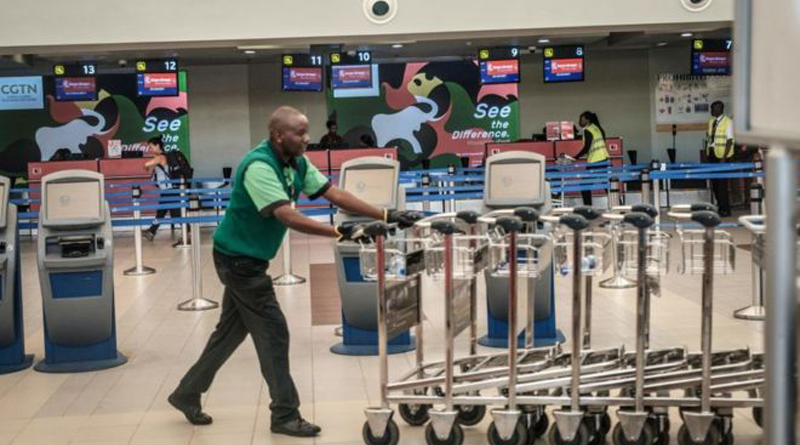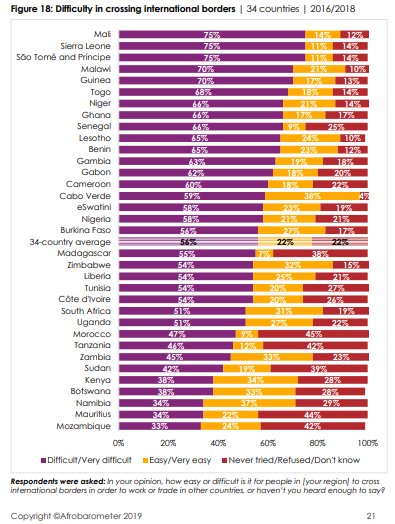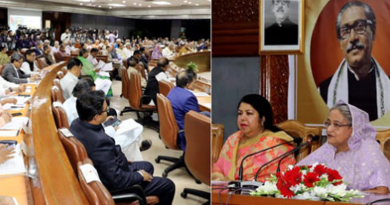African migration: Five things we’ve learnt
More than one in three Africans have considered emigrating, researchers for Afrobarometer say.
Their continent-wide survey also found that young and educated people were more likely than others to want to leave their home country.
For those who do leave, it is not to Europe or North America that most go to, but another African country.
Here are five key things we have learnt from the report.
Why do people want to leave?
“Looking for work” and “escaping poverty and economic hardship” were the biggest factors for wanting to emigrate in almost all of the 34 countries surveyed, accounting for 44% and 29% respectively.
Having family and loved ones abroad could influence that decision too.
Afrobarometer found that one in five depend at least “a little bit” on cash payments sent to them from another country. A quarter of those surveyed say someone in their family has lived in another country during the past three years.
Where do they want to go?
The most popular destinations are not in Europe or North America but within Africa.
People who say they are considering emigrating mostly want to stay within their region (29%) or go elsewhere in Africa (7%).
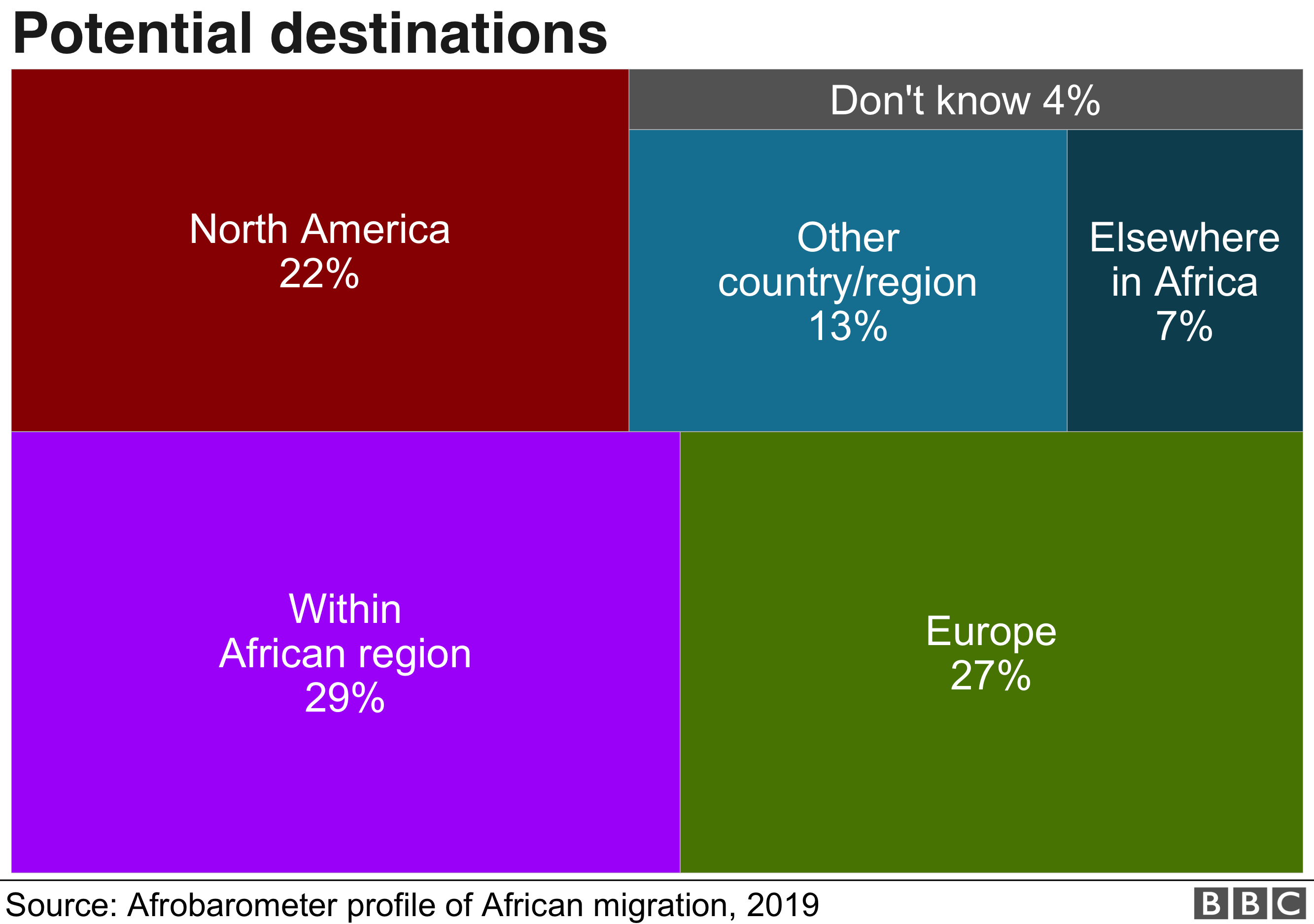 Image copyright.
Image copyright.But researchers found some interesting differences.
People in southern African indicate the strongest preference for staying in the region (58%) while this feeling was weakest in North Africa (8%).
For those saying they want to leave the continent, Europe (27%) and North America (22%) were the next biggest destinations.
Who is most likely to leave?
Around half of all young adults and highly educated citizens say they have considered leaving their country at least “a little bit”.
Young adults are most likely to consider emigrating
Most educated are most likely to consider emigrating
“Thoughts of moving abroad are about equally common among the relatively well-off and the poor”, according to Afrobarometer’s report.
More men (40%) than women (33%) say they are considering emigrating, and researchers found the desire to leave is stronger among people living in town and cities (44%) than rural areas (32%).
Which countries are people wanting to leave most?
One of the survey’s most striking findings is that 37% – more than one in three Africans – have considered moving abroad. Just under half of those say this is something they have thought about “a lot”.
When it comes to actually moving, 7% of people in Zimbabwe and Lesotho say they are currently making preparations to go, compared to an African average of 3%.
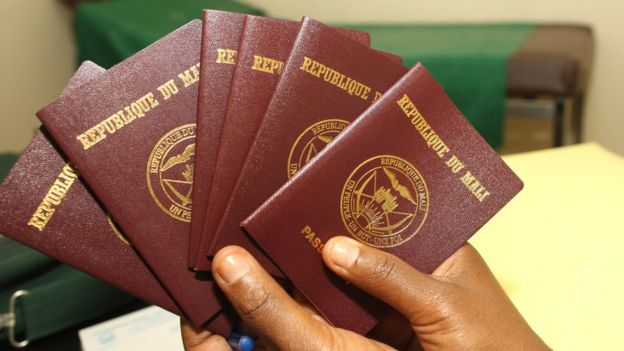 Image copyrightGETTY IMAGES
Image copyrightGETTY IMAGESCountries where more than half of people say they considering leaving at least “a little bit” are Cape Verde (57%), Sierra Leone (57%), The Gambia (56%), Togo (54%), and São Tomé and Príncipe (54%).
But this does not paint the full picture. South Sudan, which does not feature in the Afrobarometer survey, has seen more than 2.2 million people flee into the wider region since the outbreak of civil conflict in 2013.
Nor does the survey include Eritrea, from where the UN says around 2,500 refugees cross the border into Ethiopia every month.
What barriers to travel do people face?
Freedom of movement across international borders within the local region should become a reality, 56% of survey respondents have told Afrobarometer.
But the same proportion say they find it difficult to cross borders to work or trade in another country.
In recent years Namibia, Mauritius, Ghana, Rwanda, Benin and Kenya have all loosened travel restrictions for other African nationals, and now either grant a visa on arrival or allow for visits of up to 90 days with just a passport.
But citizens of African countries still need a visa to travel to more than half of the continent’s 54 countries, protecting borders drawn up by European colonisers more than a century ago.
“Somebody like me, despite the size of our group, I need 38 visas to move around Africa,” complained Nigerian billionaire Aliko Dangote in an interview in 2016.

